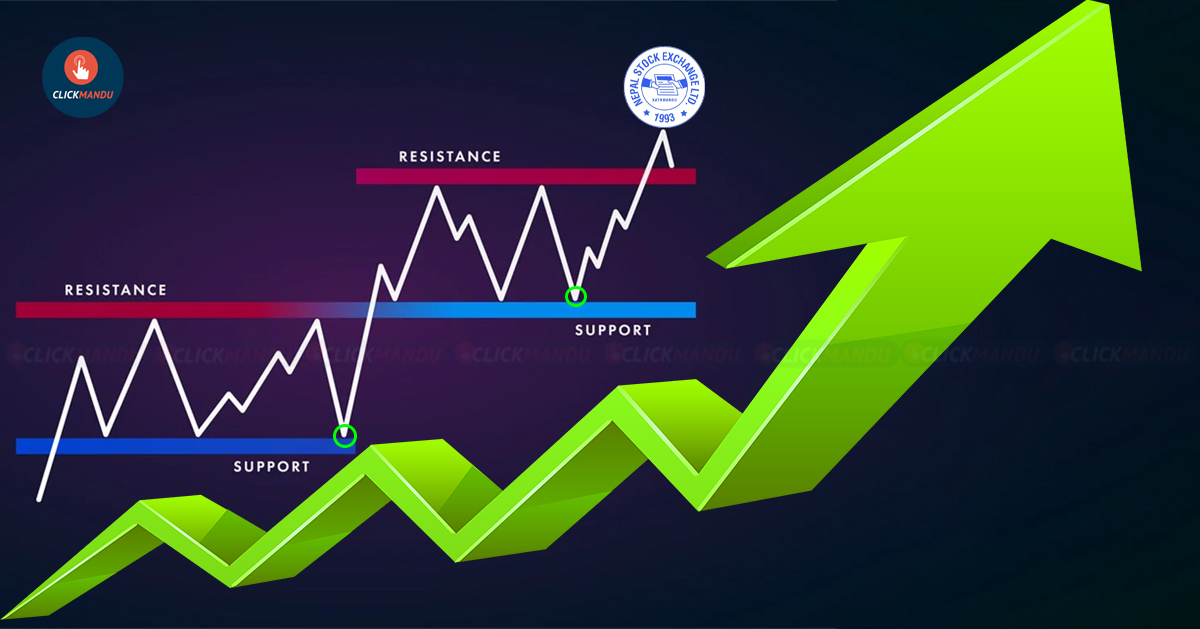Kathmandu: On Thursday, the Nepal Stock Exchange (Nepse) index plunged by 160.33 points, or 6 percent, closing at 2,511.91 points.
It was the first trading day since September 8, but the market shut down almost immediately after three consecutive negative circuit breakers were triggered. The steep drop pushed the index to its lowest level in nearly a year.
Previously, on 1 October 2024, the index had stood at 2,508.86 points. Nearly a year later, Nepse has once again contracted to the same range.
Despite trading lasting only around five minutes on Thursday, the market recorded massive losses, reflecting the impact of the Gen-Z protests on Nepal’s economy and financial sector.
Just nine days ago, on September 8, the market capitalization stood at Rs 44.67 trillion. But in a single day, it shrank by Rs 2.68 trillion, dropping to Rs 41.99 trillion. Investors lost Rs 268.04 billion in Thursday’s trading alone.
The Gen-Z protests have heavily impacted both government and private sectors. Widespread damage to public and private property has already led to insurance claims worth Rs 20.7 billion at non-life insurance companies. Many listed companies targeted by protesters will also take time to recover.
In this situation, calls are growing for the government to immediately announce programmes to boost the morale of private businesses and investors. Former banker and financial expert Anal Raj Bhattarai suggests that the government should introduce a “Business Recovery Framework” to restore confidence.
“In just two days, there was a complete change in government and political power arrangements, something no one imagined. Naturally, the capital market reacted to this,” Bhattarai said. “Unless the government takes steps to boost investor confidence, we could see another major crash on Sunday.”
He argued that since fresh capital inflow is unlikely at the moment, the government must focus on mobilizing existing capital. He also pointed out that damages extend from depositors’ savings to insurance obligations, while uninsured public structures lie in ruins. All these factors have weighed heavily on banks, financial institutions, and the stock market.
“The government is under huge financial strain and cannot offer economic relief directly. But policy relief is still possible,” Bhattarai added. “If Nepal Rastra Bank, the Securities Board of Nepal, the Insurance Board, and the government provide timely policy measures as they did during the earthquake and the COVID-19 pandemic, confidence in the financial sector will return.”
The interim government formed after the protests is led by Prime Minister Sushila Karki, with Dr Rameshore Khanal as finance minister. His appointment was initially welcomed by investors, but the stock market has not shown the same level of confidence in him or the government.
On Thursday alone, shares of 11 companies hit negative circuits, while 21 companies lost more than 9 percent. Out of 226 actively traded companies, 217 saw declines and only nine gained.
Since the stock market is regarded as a mirror of the overall economy, experts warn that this downturn signals deeper distress across sectors. They urge the government to prevent further contraction and to act decisively to lift investor sentiment.
Insurance companies now face heavy claims due to damages during the protests, limiting their ability to pay returns. Several banks and financial institutions also suffered arson and vandalism. And while an interim government is in place, uncertainty persists about its long-term direction, leaving investors anxious.
Banker Parashuram Kunwar said unexpected events created confusion among investors, directly impacting the market. “Nobody expected such incidents. But the loss of lives and property has deeply shaken confidence,” he said. “That’s what we’re seeing in the stock market. Still, it may not take too long for the market to regain rhythm.”
Kunwar stressed that the government must move ahead with legal and institutional measures to heal wounds across all sectors and restore morale. He noted that families of the deceased and injured, police personnel, and the financial sector have been particularly demoralized. Many financial institutions will also need to use this year’s profits to cover damages, affecting their performance.
The financial sector has urged the government not to introduce new taxes before elections, to continue funding essential capital projects, and to present a comprehensive economic recovery plan. Experts also suggest strengthening foreign exchange reserves, ensuring food and energy security, cutting unnecessary spending, and prioritizing job-creating projects.
In addition, the government must immediately assure depositors about the safety of their funds and publish an asset quality review schedule. It is also necessary to prepare a clear plan for handing power to an elected government, reform tax administration, establish an independent financial council, and implement asset quality review timelines, experts say.



Comment Here